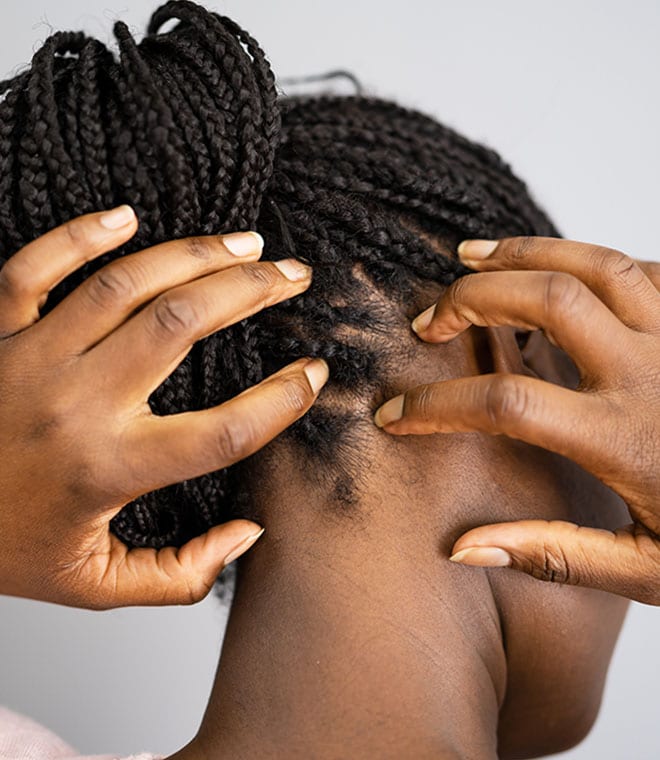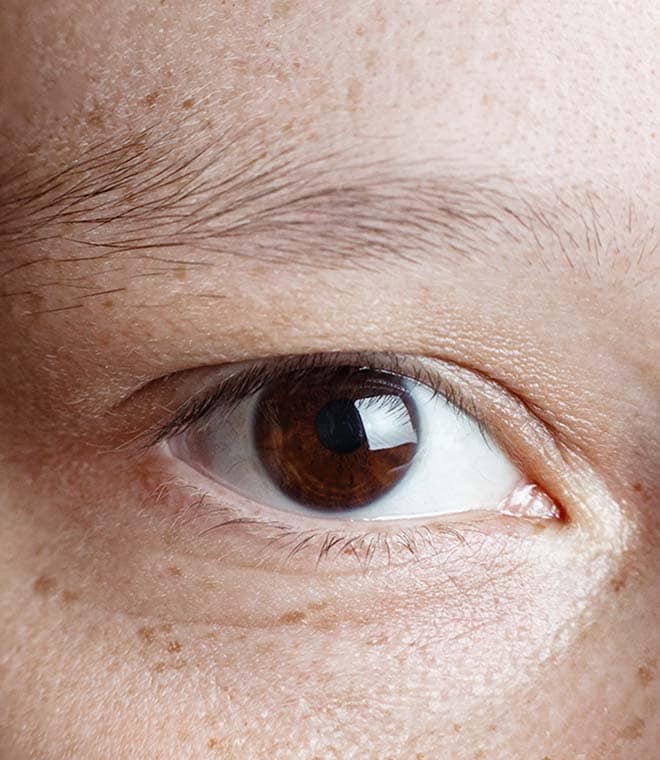Health
What is diffuse thinning?
By Anna H. Chacon, MD, Fellow of the American Academy of Dermatology Feb 07, 2025 • 5 min
The term “diffuse thinning” refers to hair loss that occurs all over the scalp in no defined pattern. Diffuse thinning can cause your hair to appear thinner. Also known as diffuse hair loss, diffuse thinning can impact your appearance, self-esteem and quality of life. Understanding the signs and causes of diffuse thinning can put you in a better position to seek treatment for hair loss symptoms.
Hair shed vs. hair loss: What's the difference?
Most people lose between 50 and 100 hairs daily through a process called shedding. Hair shedding is perfectly normal. Hair loss occurs when the rate of shedding becomes so fast that it results in thinning hair or balding spots.
To understand why your hair might be thinning, it may be helpful to understand the three stages of hair growth.
- Anagen phase: This is the active growth phase of the hair when the cells in the hair root divide very quickly and add to the shaft, making the hair grow longer. This stage lasts around two to six years. During any given time, around 80% to 90% of your hair is typically in the anagen state.
- Catagen phase: This is a transitional phase in which your hair stops growing, and it usually lasts around two to three weeks.
- Telogen phase: This is the resting stage when your hair prepares to shed. This stage lasts around three months and ends with the hair falling out of the follicle.
Signs and causes of diffuse thinning
If you’re losing hair faster than normal, you’ll likely notice:
- More hairs than usual in your comb or brush
- More hairs than usual on your pillow or clothes
- More hair coming out in your hands when you're shampooing or styling
- A thinner appearance to your hairstyle
Causes of diffuse thinning may include:
- Medical conditions, such as autoimmune disorders
- Skin conditions of the scalp or diseases that affect hormone levels
- Certain nutritional deficiencies
Once an underlying medical condition or nutritional deficiency is addressed, the hair will typically begin to regrow.
Telogen effluvium and anagen effluvium
The term “effluvium,” which is used to describe the act of flowing out, describes some types of diffuse hair loss. Telogen effluvium and anagen effluvium are common causes of thinning hair.
Telogen effluvium typically occurs in response to a shock—emotional stress caused by traumatic events, but it can also sometimes be caused by some health conditions and medications. It’s characterized by the rapid shedding of hairs in the telogen (falling out) stage and a premature transition of hairs from the anagen (growth) stage to the telogen stage.
Some people may lose as much as 70% of their hair, but it’s generally temporary. Telogen effluvium treatments are typically aimed at treating the underlying trauma, after which hair usually regrows within six to eight months.
Anagen effluvium usually occurs as a result of chemotherapy or radiation treatments for cancer, which work by targeting fast-growing cancer cells. However, they also attack the cells in the hair follicles, leading to the shedding of hairs that are in the active growth phase. Because most hairs on the scalp are in the anagen stage, the result is typically rapid, widespread hair loss.
Although radiation treatment to the head sometimes causes permanent hair loss, anagen effluvium usually resolves after chemotherapy ends, and hair begins to grow again within around one to three months.
If you believe you're experiencing diffuse thinning, talk to your healthcare provider. They may need to order diagnostic tests to determine the cause. If a medical condition or nutritional deficiency is to blame, getting treatment as quickly as possible can lower the likelihood of major hair loss. Your healthcare provider can also recommend prescription or over-the-counter hair regrowth treatments. They may also be able to provide self-care tips to help reduce shedding and support new growth.
Updated by Julie McDaniel, MSN, RN, CRNI, February 2025.
Sources:
- https://www.aad.org/public/diseases/hair-loss/causes/18-causes
- https://www.aafp.org/afp/2017/0915/p371.html
- https://www.ncbi.nlm.nih.gov/books/NBK482293/
- https://www.health.harvard.edu/a_to_z/telogen-effluvium-a-to-z
- https://www.health.harvard.edu/a_to_z/hair-loss-a-to-z
- https://www.oncolink.org/support/side-effects/skin-hair-nail-side-effects/hair-loss-alopecia-from-radiation-treatment
- https://www.uptodate.com/contents/evaluation-and-diagnosis-of-hair-loss
- https://jamanetwork.com/journals/jama/fullarticle/2795266
- https://www.aad.org/public/diseases/hair-loss/insider/shedding
- https://www.health.harvard.edu/staying-healthy/treating-female-pattern-hair-loss
- https://www.ncbi.nlm.nih.gov/books/NBK499948/
- https://doi.org/10.1016/B978-0-12-801700-5.00001-7




